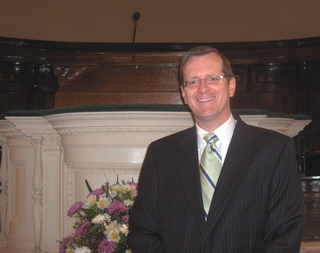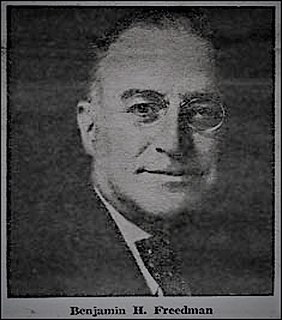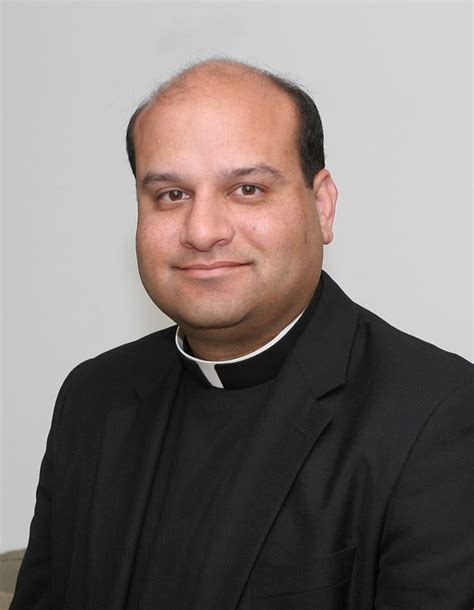A Quote by H. L. Mencken
What I got in Sunday school ... was simply a firm conviction that the Christian faith was full of palpable absurdities, and the Christian God preposterous.... The act of worship, as carried on by Christians, seems to me to be debasing rather than ennobling. It involves groveling before a being who, if he really exists, deserves to be denounced instead of respected.
Related Quotes
After 9/11, there were a lot of things being said about how the God of Islam and the God of the Christian faith were one and the same, but that's simply not true ... The God that I worship does not require me to kill other people. The God that I worship tells me I am to love my enemy, to give him food when he's hungry and water when he's thirsty.
Christians have always tended to transform the Christian Revelation into a Christian religion. Christianity is said to be a religion like any other or, conversely, some Christians try to show that it is a better religion than the others. People attempt to take possession of God. Theology claims to explain everything, including the being of God. People tend to transform Christianity into a religion because the Christian faith obviously places people in an extremely uncomfortable position that of freedom guided only by love and all in the context of God's radical demand that we be holy.
In practice it undermines the transformation of faith. When Christians concentrate their time and energy on their own separate spheres and their own institutions-whether all-absorbing megachurches, Christian yellow-page businesses, or womb-to-tomb Christian cultural ghettoes-they lose the outward thrusting, transforming power that is at the heart of the gospel. Instead of being 'salt' and 'light' -images of a permeating and penetrating action-Christians and Christian institutions become soft and vulnerable to corruption from within.
Because the Christian God is not a lonely God, but rather a communion of three persons, faith leads human beings into the divine communion. One cannot, however, have a self-enclosed communion with the Triune God- a "foursome," as it were-- for the Christian God is not a private deity. Communion with this God is at once also communion with those others who have entrusted themselves in faith to the same God. Hence one and the same act of faith places a person into a new relationship both with God and with all others who stand in communion with God.
That the religious right completely took over the word Christian is a given. At one time, phrases such as Christian charity and Christian tolerance were used to denote kindness and compassion. To perform a "Christian" act meant an act of giving, of acceptance, of toleration. Now, Christian is invariably linked to right-wing conservative political thought -- Christian nation, Christian morality, Christian values, Christian family.
To worship God 'in spirit and in truth' is first and foremost a way of saying that we must worship God by means of Christ. In him the reality has dawned and the shadows are being swept away (Hebrews 8:13). Christian worship is new covenant worship; it is gospel-inspired worship; it is Christ-centered worship; it is cross-focused worship.
The history of the world for the past several centuries and current events at home and abroad confirm the existence of such a conspiracy (to destroy Christianity and obtain global power). The world-wide net-work of diabolical conspirators implements this plot against the Christian faith while Christians appear to be sound asleep. The Christian clergy appear to be more ignorant or more indifferent about this conspiracy than other Christians ... It seems so sad.
In restating this basic Christian doctrine, Benedict argues that it is not only for Christians alone. Others may not share the Christian faith in God, but the Christian proclamation that hope comes from within the person- in the realm of faith and conscience - is for them too. It offers an important protection against stifling and occasionally brutal social systems built on false hopes that come from outside the person, founded on political idealogies, economic models and social theories.
The Christian's instincts of trust and worship are stimulated very powerfully by knowledge of the greatness of God. But this is knowledge which Christians today largely lack: and that is one reason why our faith is so feeble and our worship so flabby... When a person in the church, let alone the person in the street, uses the word God, the thought is rarely of divine majesty.
I have a very traditional Christian faith, so I want to believe that there's a God. But I haven't really thought about it too much. I don't really buy the idea of hell, I struggle a bit with that part of the Christian story, it just seems to be overdoing it. But whether I can choose what I believe and don't believe, I don't know.
A Christian boy or girl can learn mathematics, for example, from a teacher who is not a Christian; and truth is truth however learned. But while truth is truth however learned, the bearing of truth, the meaning of truth, the purpose of truth, even in the sphere of mathematics, seem entirely different to the Christian from that which they seem to the non-Christian; and that is why a truly Christian education is possible only when Christian conviction underlies not a part but all, of the curriculum of the school.
The real issue relating to exclusiveness is whether or not the Christian actually has a relationship with God, a presence of God, which non-Christians do not have. Apart from Christian spiritual formation as described here, I believe there is little value in claiming exclusiveness for the Christian way.






































